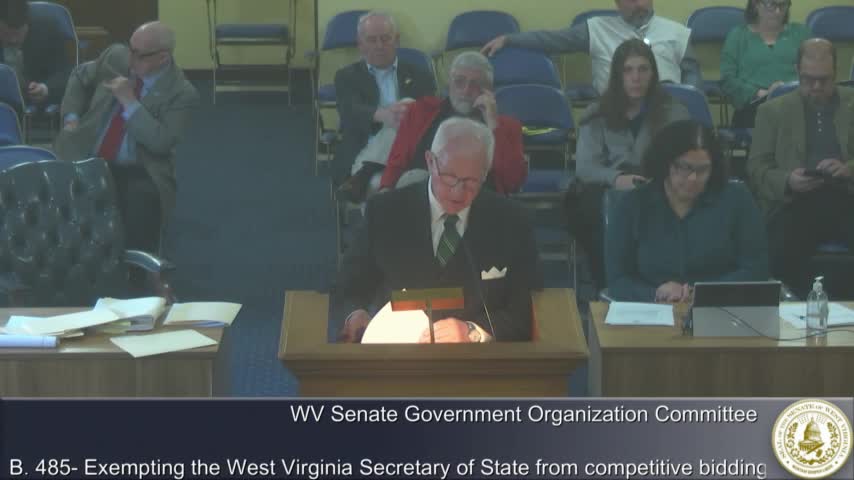Committee backs SB 564 to bar unaffiliated voters from party primary ballots; sponsor and Secretary of State explain rationale
Get AI-powered insights, summaries, and transcripts
Subscribe
Summary
SB 564 would prevent voters not registered with a political party from voting a party's primary ballot, providing them a separate ballot for nonpartisan races and questions; the committee voted to report the bill to the full Senate with a recommendation that it pass and a referral to the Judiciary Committee.
The Senate Committee on Government Organization voted to report Senate Bill 564 to the full Senate with a recommendation that it pass and a referral to the Judiciary Committee. The bill would prevent voters not registered with a political party from voting a party ballot in a primary election; those voters would instead receive a separate ballot to vote nonpartisan offices and public questions.
Committee counsel summarized the bill, saying it "amends 2 sections of code to provide that a voter who is not registered as affiliated with a major political party ... may not vote a party ballot in the primary election" and that a "political party" is defined in statute (chapter 3, article 1, section 8) as any affiliation that polled at least 1% of total votes cast for governor in the last general election.
Dean Kersey, chief of staff for the Secretary of State, described the variety of primary structures across states and said some states have closed primaries while others are semi-closed or open. Kersey said he could provide comparative information after the hearing and noted administrative details about how party ballots are presented at polling places.
Sponsor Senator Eric Tarr said the bill aims to prevent what he described as "raiding" of primaries by unaffiliated voters who switch affiliation or vote strategically in another party's primary. Tarr said the legislation seeks predictability and clarity in the primary process and cited an example: "I'll talk about the Sue Klein election. So this is what happened within that Sue Klein election. Sue Klein election, you had a bunch of Democrats that moved from, Democrat party into unaffiliated, and then voted in Republican primaries, and put somebody who was their candidate, so to speak, and able to push that person over and win that primary." Tarr told the committee he introduced the bill to protect the integrity of primary nominations.
Committee members asked whether the change duplicates or conflicts with party rules; counsel and Mr. Kersey discussed how parties that nominate by convention do not produce a party ballot at polling places, and how the bill's language would operate on election day.
The vice chair moved that SB 564 be reported to the full Senate with the recommendation that it pass and that it be referred under double committee reference to the Judiciary Committee; the motion carried.
Why it matters: The bill would change who may participate in party primary ballots, potentially narrowing primary electorates and affecting where unaffiliated voters may cast ballots in partisan primaries.
Next steps: The bill will go to the full Senate and, under the motion, also to the Judiciary Committee for additional review.
